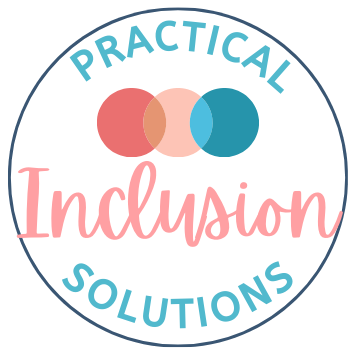In the last post, we talked about the importance of building relationships as a teacher. Some key strategies include using respect and positivity, helping students feel valued, and incorporating their interests into learning. Now, let’s talk about building relationships with families—why it’s important and how to foster strong connections.
Building Relationships with Families
One of the greatest assets in a student’s educational journey is their family. Teachers come and go, working with students for one or multiple years, but families are a constant. They know their children best. While educators bring expertise in teaching strategies, curriculum, and behavior management, families offer invaluable insights into their children’s strengths, interests, and needs.
For families of students with diverse learning styles, communication with their child’s school team is especially important. Some students may struggle to share details about their school day, leaving parents wondering how things are going. If communication from school is inconsistent, this can lead to frustration or anxiety. One of the best ways to build trust and foster collaboration is to communicate early and often. We’ll explore this in greater detail in a future post, but the foundation of a strong teacher-family relationship is built on respect and positivity.
Building Relationships with Trust and Respect
So how do we build meaningful relationships with our students’ families? It starts with respect.
When we engage with families as valued members of the educational team, we create a partnership. If we approach conversations as though we have all the answers, we risk alienating them. Instead, we should actively listen, acknowledge their insights, and express gratitude for their involvement. Even small gestures, like thanking a parent for a suggestion or confirming that their message was received and will be addressed, go a long way in building trust and showing respect.
It’s also important to recognize that families may sometimes express frustration or concern—whether it’s about curriculum, classroom routines, or social interactions. Some parents may have questions about teaching strategies, inclusion practices, or their child’s progress. Others may be upset about an incident that occurred during the school day. In these moments, staying calm and showing empathy is key. Simple phrases like “I hear what you’re saying” or “I understand your concerns” can help de-escalate tension and show parents that you are listening.
Just as we extend patience and grace to our students, we must do the same for their families. Acknowledging their perspective and working toward a shared understanding strengthens the relationship and ultimately benefits the student.
Building Relationships with Positivity
As a parent, I can tell you—if the only feedback I received from my child’s teacher was negative, I would feel discouraged. No parent wants to believe their child’s teacher sees only their challenges.
Positivity plays a critical role in reassuring families that while there may be areas for growth, their child is in a supportive environment with educators who believe in them. If you use a daily communication log or send home updates, make it a point to highlight at least one positive moment each day.
For example, instead of only reporting struggles, balance the message:
➡ “Your child had a hard time focusing in social studies today, but during recess, they held the door open for their classmates and greeted each person with a smile.”
A note like this acknowledges areas for growth while also recognizing kindness and progress.
Reassurance is another powerful tool. When discussing challenges, let families know what steps you’re taking to support their child. A simple statement like “I have every confidence that your child will succeed” can make a world of difference in how a parent perceives the school experience. Using a positive tone in interactions fosters trust and reinforces that you are working toward the same goal: their child’s success.
Relationships Take Work—But They’re Worth It
Building strong relationships with families isn’t always easy. Some days, you may feel overwhelmed with emails, phone calls, and meetings. But remember—every effort you make strengthens the partnership and ultimately benefits the student. When educators and families work together, we create an inclusive, supportive learning environment where all students can thrive.
Stay tuned for more insights on fostering strong family partnerships in inclusive education!
Want to learn more? Check out these resources:
⭐️ 20 Tips for Developing Positive Relationships with Parents
⭐️ A Strategy for Building Productive Relationships with Parents
⭐️ 5 Ways Teachers Can Establish Positive Relationships with Parents
Do you have tips for building strong relationships with families in an inclusive classroom? Share your thoughts in the comments or connect with us on Instagram @practicalinclusionsolutions!
